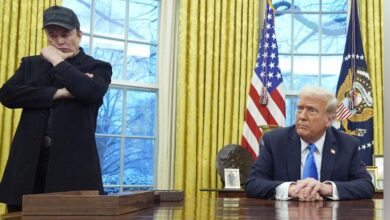Saudi Arabia Denounces the U.S. Dollar: A Strategic Shift in Global Finance

In a significant move that could reshape global financial markets, Saudi Arabia has announced its intention to diminish its reliance on the U.S. dollar. This decision, coming amid growing economic and geopolitical tensions, underscores the kingdom’s efforts to diversify its economic partnerships and reduce vulnerability to U.S. monetary policy.
Background and Motivation
Historically, Saudi Arabia has maintained a robust economic relationship with the United States, primarily through its oil exports priced in dollars, a practice rooted in the petrodollar system established in the 1970s. However, recent years have seen increasing volatility in U.S. politics and economic sanctions that have prompted nations to reassess their dependence on the dollar.
Saudi Arabia’s denouncement of the dollar is driven by several factors. Key among them is the kingdom’s Vision 2030 initiative, aimed at diversifying its economy away from oil dependence. By reducing dollar dependency, Saudi Arabia seeks to bolster its financial stability and foster stronger economic ties with emerging markets such as China and India, which are becoming major players in global energy consumption.
Implications for Global Markets
The shift away from the dollar could have far-reaching implications. For one, it could encourage other nations to consider similar moves, potentially weakening the dollar’s dominance in global trade. Countries like Russia and China have already made strides in reducing their dollar holdings, and Saudi Arabia’s actions could accelerate this trend.
Additionally, this decision may impact global oil markets. With oil being a major commodity traded in dollars, any significant shift could lead to increased use of other currencies, such as the euro or the Chinese yuan, for oil transactions. This change could introduce new dynamics in oil pricing and trading strategies.
U.S. Response and Economic Impact
The U.S. government is likely to respond to Saudi Arabia’s decision with a mix of diplomatic and economic measures. While the immediate economic impact on the U.S. might be limited, a broader trend of de-dollarization could pose challenges to American financial influence globally. The U.S. dollar’s role as the world’s primary reserve currency has long afforded the country significant economic benefits, including lower borrowing costs and the ability to impose financial sanctions effectively.
Future Prospects
Saudi Arabia’s move is part of a broader global shift towards a more multipolar economic system. As countries seek to reduce their exposure to the dollar, we may see a more balanced distribution of global financial power. For Saudi Arabia, the success of this strategy will depend on its ability to cultivate new economic partnerships and navigate the complex landscape of international finance.
Saudi Arabia’s denouncement of the U.S. dollar marks a pivotal moment in global finance. As the kingdom pursues greater economic independence and diversification, the ripple effects of this decision will be closely watched by policymakers and market participants worldwide.





